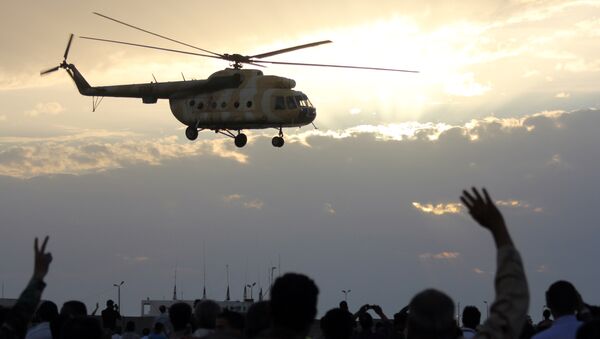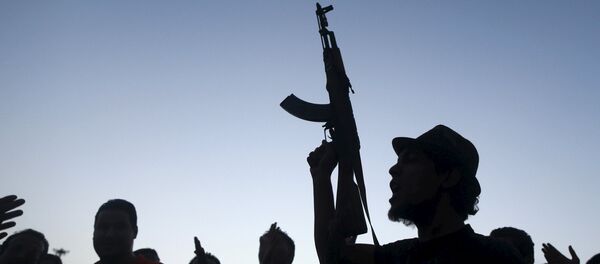The North African country is gripped in a civil war between the internationally recognized Libyan government, forced to operate from Tobruk on the eastern border with Egypt and its rival self-styled government in Tripoli, which is run by Libya Dawn, the dominant Islamist group of a coalition of forces.
Reports of a #helicopter MI8 down in #Libya. Belongs "Dawn of Libya" West of Tripoli. Breaking @BlogsofWar pic.twitter.com/mvp1x8fOGe
— ✪=ⒶⓇⒺⒶ-⑧②=✪ (@Surveillance911) October 27, 2015
Libya Dawn has blamed the attack on rival forces loyal to the official Libyan army and pointed the finger at the "so-called Tribes Army, allies with the remnants of the [Gaddafi] regime."
But the Warshefana tribe has denied any involvement in the attack. In a statement, the Al-Maya Municipality claimed it was the work of "agents of fitna [division]" who want to "cause strife between the tribes and destroy Libya's social tissue."
#Libya's National Army & Wershafana's Military Council have both denied responsibility for the #Libya Dawn helicopter.
— Mohamed Eljarh (@Eljarh) October 28, 2015
Corrupt officials seemingly operating based on tribal affiliations and self-interests are disrupting the fabric of Libyan society. According to the UN's Refugee Agency: "The current situation in Libya is characterized by a continued lack of rule of law and order, ongoing fighting between rival armed groups in many parts of the country and daily assassinations, bombings and kidnappings.
"Intense fighting between opposing armed groups over control of territory, resources and infrastructure since May 2014 has resulted in the death of thousands of people, including civilians, and led to the displacement of over 435,000 individuals, the destruction of vital infrastructure, disruption of basic services and deteriorating humanitarian conditions."
But since the fall of Gaddafi, Libya is now, according to UN special envoy Berardino Leon, "on the verge of economic and financial collapse" and "facing a huge security threat because of civil war."
Leon also says a more important threat to Libya is from Islamic State militants.
While the West has been accused of turning a blind eye on the chaos ensued, European Union leaders will be forced to look back at Libya while member states' navies carry out Operation Sophia — refugee search and rescue operations at sea.
Rear Admiral Herve Blejean, deputy head of Operation Sophia, told a news conference:
"At some point, it will have to work within Libyan territory."
As the chaos deepens in Libya and unity government talks continue to fail, ISIL finds more opportunities.
"ISIL has realized that the largest factions are more interested in fighting each other," Mattia Toaldo, Libya specialist at the European Council on Foreign Relations, told Reuters.
"It is expanding in central Libya, encountering little resistance".



